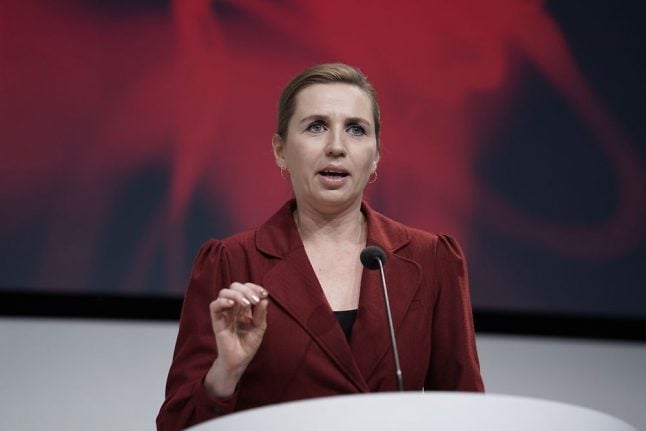China’s representation in Denmark has demanded that newspaper Jyllands-Posten apologize for a cartoon depicting each of the five yellow stars of the Chinese flag as a coronavirus. The drawing was published in Monday's edition of the newspaper.
READ ALSO: China demands apology over Danish newspaper's cartoon flag 'insult'
Frederiksen commented briefly on the matter on Tuesday prior to a Social Democratic parliamentary party meeting, Jyllands-Posten reports.
“I have nothing else to say about it other than that we have a very, very strong tradition in Denmark, not only for free speech, but also for satirical drawings, and that will continue in the future as well. It is a well-known Danish position, and we won’t change that,” she said.
The PM did not respond directly to the Chinese calls for an apology.
“I just want to say from Denmark and the Danish government's side, all we have to say is that we have freedom of expression in Denmark — also to draw,” Frederiksen said.
There was no further need to explain Denmark’s position to China, she also said.
“I don't think anyone is uncertain about how Denmark works in terms of free speech,” the PM said.
She said her comments could be considered an “official statement on my part” over Denmark’s position on free speech.
Minister of Foreign Affairs Jeppe Kofod expressed similar sentiments in comments given to the same newspaper.
Kofod told Jyllands-Posten he did not, in principle, comment on satire drawings, including the Chinese flag cartoon.
“We have freedom of speech and assembly in Denmark, and it is not for me to debate satirical drawings or comment on this. It is known that we have (free speech), and that is also clear to the Chinese,” Kofod said prior to a meeting in Brussels.



 Please whitelist us to continue reading.
Please whitelist us to continue reading.
Member comments